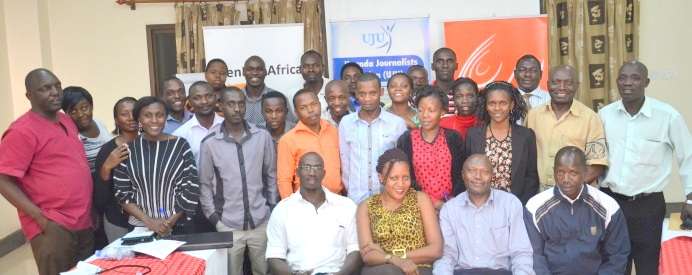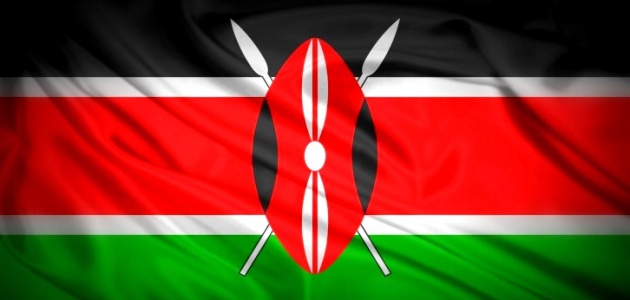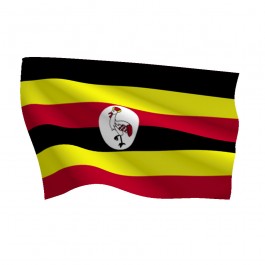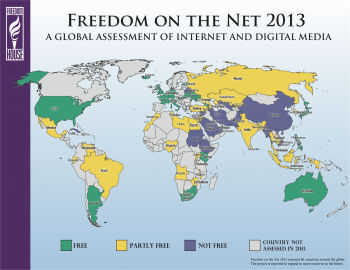By Juliet Nanfuka |
On May 2, a total of 27 Ugandan journalists were trained in digital security procedures. The training was held in commemoration of World Press Freedom Day (May 3), which this year was celebrated under the theme “Let Journalism Thrive! Towards Better Reporting, Gender Equality, and Media Safety in the Digital Age”.
The training, which was organised by the Collaboration on International ICT Policy in East and Southern Africa (CIPESA) in partnership with Uganda Journalists Union (UJU) and the East and Horn of Africa Human Rights Defenders Project (EHARDP), explored the status of journalism in Uganda as well as the legal and regulatory frameworks affecting freedom of expression in the country. Participants at the training workshop represented print, online and broadcast media houses from across Uganda.
During the training, it emerged that some journalists are not cautious about their online security, similar to those in a previous training hosted by CIPESA. The reuse of one password across different websites and platforms, and overexposure of personal information online were common among the training participants. Email encryption, the use of Virtual private networks (VPNs) and Multi Factor Authentication for passwords, were taught as skills that can aid journalists when investigating sensitive stories that may be prone to surveillance.
Norman Katende, an international award winning journalist, shared his experiences of being threatened while reporting on controversial stories and encouraged journalists to practice caution both online and offline. He questioned how journalism can thrive in the face of police attacks on the media, noting that journalists should not compromise on their security when covering sensitive stories just to earn a living.
According to the Committee to Protect Journalists (CPJ), an international organisation that defends the rights of journalists, over the past two decades, 1125 journalists across the world lost their lives while reporting or investigating stories. The medium increasingly used by journalists to source and disseminate information is the internet.
Last month, Somalia journalist Daud Ali Omar and his wife were murdered. The same month, Kenyan journalist Johan Kituyi, proprietor of the newspaper Mirror Weekly, which has covered controversial national issues, was also murdered.
Increasingly, online publishers and bloggers are also coming under attack in Africa. For instance, a year after their arrest, the Ethiopian Zone9 bloggers remain behind bars and in Burundi, civil unrest related to upcoming elections has led to government restrictions of information flow through various media houses – and radio stations.
Such attacks necessitate digital safety skills for journalists. “When you look at the level of knowledge on ICT that a journalist has – it’s really basic. We have several unsecured email accounts and we visit any website without [considering] security,” noted a journalist at the training in Kampala.
Journalists noted that they do not always exercise their rights and do not request security from their media houses when pursuing sensitive stories. They also indicated a lack of awareness of the laws in place that can aid them in developing stories, such as the Access to Information Act (2005), which compels Ministries, Departments and Agencies to release information.
Following a CIPESA presentation on the legal and regulatory frameworks affecting internet freedom, especially freedom of expression online in Uganda, a Soroti-based journalist said the training had made him re-evaluate how he used his mobile phone and the internet, saying that he had been using these tools “without considering their implications.”
Further to the commemoration of World Press Freedom day, CIPESA participated in the “Digital safety for journalists” plenary session of the global event hosted by UNESCO. CIPESA and its partners in various countries were also involved in a series of Twitter engagements which explored press freedom, including in the digital world, particularly for African journalists.
The training was conducted in the context of CIPESA’s OpenNet Africa initiative that promotes internet freedom in Africa and is supported by the Open Technology Fund, Hivos and the Association for Progressive Communications (APC).
Is Kenya Putting the Chill on Internet Freedoms?
By Juliet Nanfuka |
The rights of Kenya’s digital citizens are fast shrinking in the face of new restrictive laws and increased arraignment of individuals for expressing online opinions which authorities deem in breach of the law.
The Security Laws (Amendment) Act 2014, assented to by President Uhuru Kenyatta last December, allows blanket admissibility in court of electronic messages and digital material regardless of whether it is not in its original form.
It is feared that retrogressive provisions in this law could be used to put the chill on internet freedoms in East Africa’s most connected country where mobile phone penetration stands at 80% and internet access at 50% of the population.
Part V of the new security law regarding “special operations” has raised particular concerns, as it expands the surveillance capabilities of the Kenyan intelligence and law enforcement agencies without sufficient procedural safeguards.
It gives broad powers to the Director General of the National Intelligence Service to authorise any officer of the Service to monitor communications, “obtain any information, material, record, document or thing” and “to take all necessary action, within the law, to preserve national security.”
In addition, the amendments also contain unclear procedural safeguards especially in the interception of communications by “National Security Organs” for the purposes of detecting or disrupting acts of terrorism.
Even though there is a provision for a warrant to be issued by a court of law, the broad definition of ‘national security’ leaves no room for restrictions on the extent of power the law grants to National Intelligence Service when it comes to accessing personal data, information and communications.
In February 2015, the Kenya High Court struck some clauses from the security law. The government says it may appeal.
Government says the new law is necessary to fight al Shabaab militants who have repeatedly rocked the country with fatal attacks such as the Westgate shopping centre attack on September 21, 2013, which left 67 people dead. Human rights activists blame President Kenyatta’s government for steadily shrinking the space for civil actors, a pattern they say was manifested in the Kenya Information and Communications (Amendment) Act 2013 and the Media Council Act 2013. These laws, they say, placed restrictions on media freedom and general freedom of expression.
The proposed Cybercrime and Computer related Crimes Bill (2014) also falls short of constitutional guarantees as it is contains “broad” speech offences with potentially chilling effects on free speech. See a full legal analysis of the Bill by Article 19. Proposed regulations to the law governing non-government organisations, which cap the funds received from foreigners at 15% of their overall budgets, have also been criticised as aimed to curtail and control the activities of civic groups engaged in governance and human rights work.
Over the 2012-2013 election period, several individuals were charged in court over their online communications. The National Cohesion and Integration Act of 2008 has been used to charge many for promoting hate speech – which some Kenyan citizens found justifiable given the role that hate speech played in the 2007 to 2008 post-election violence.
Hate Speech is defined by the 2008 Act as speech that is “threatening, abusive or insulting or involves the use of threatening, abusive or insulting words” with the intention to stir up ethnic hatred or a likelihood that ethnic hatred will be stirred up. Authorities, however, seem to be shifting gear and using this charge among others against online journalists and bloggers that criticise the Kenyatta government.
In December 2014, blogger Robert Alai was arrested and charged with undermining the authority of a public officer contrary to Section 132 of the Penal Code by allegedly calling President Kenyatta an “adolescent president” in a blog. He was again arrested in February 2015 for offending a businessman online by linking him to a land saga that involved the illegal acquisition of the Langata Primary School playground.
Meanwhile, Allan Wadi – a student – was also arrested for “hate speech” and jailed in January 2015 for posting negative comments on Facebook about the president. In the same month, journalist Abraham Mutai was arrested following tweets he posted on corruption in the Isiolo County Government. He was charged with the “misuse of a licensed communication platform to cause anxiety.”
Nancy Mbindalah, an intern with the department of finance at the Embu County Government, was charged on similar grounds for social media posts dating as far back as 2013 in which she is alleged to have abused County Governor Martin Wambora.
at the Embu County Government, was charged on similar grounds for social media posts dating as far back as 2013 in which she is alleged to have abused County Governor Martin Wambora.
In all instances, some social media users claimed there were “selective” arrests and prosecution of those critical of government. Critics cited the case of Moses Kuria, a Member of Parliament (MP) for Gatundu South, who allegedly made remarks on Facebook against the Luo Community but did not face the same punitive actions.
A recent news report, however, indicates that the National Cohesion and Reconciliation Commission and the Public Prosecutor are calling for the MP’s case to be revisited for the “incitement to violence, hate speech and fanning ethnic hatred.”
The incidents of arrest, prosecution and law amendments demonstrate a recurring theme of clamping down on dissenting citizen voices, a concern that was highlighted by the Kenya Human Rights Commission and the International Federation for Human Rights following the enactment of the Security Laws (Amendment) Act.
While the country remains on a constant alert for terror attacks, this has been used to strengthen the control that the state has on freedom of expression and surveillance. The lack of laws that limit state access to citizens’ information further exacerbates this concern.
Uganda: When National Security Trumps Citizens’ Internet Freedoms
The Ugandan telecommunications sector was liberalised in 1998, resulting in an influx of service providers – there are currently four major mobile telecom operators and more than 30 Internet Service Providers (ISPs). The establishment of a Uganda Internet Exchange Point (UIXP) allows for local internet traffic routing, increased speeds and lower costs. The regulatory body reports a teledensity of 52 phones per 100 inhabitants and an internet penetration rate of 20%.
Ugandans have embraced social media as an alternative means of communication with their peers as well as for engaging with government. This is seen in the increase in the popularity of social networking sites such as Facebook, Twitter, LinkedIn, Youtube and Blogspot, which are ranked among the top 10 most visited websites in Uganda. As such the government has developed social media guidelines to aid its ministries, agencies and departments in communicating and engaging with citizens online.
However, as the telecommunications sector grows, so have the number of laws passed to regulate it. Some of these laws have drawn criticism from internet actors both locally and internationally due to their severity, infringement on human rights and contradictions with other existing legislation, including the constitution.
“No person shall be subjected to interference with the privacy of that person’s home, correspondence, communication or other property.”
Article 27 (2) of Ugandan Constitution
The use of ICTs in Uganda is threatened by the very laws that are meant to both protect citizens and ensure their rights. The Regulation of Interception of Communications Act, 2010, the Anti-Terrorism Act No.14 of 2002, the Anti-Pornography Act of 2014 and the Anti-Homosexuality Act of 2014 have undercurrents of surveillance, content filtering, and monitoring.
Although these laws are guised under provisions aimed to protect national security or fight cybercrime, in effect they may serve to silence voices critical to the state. Ultimately, these provisions are resulting in self-censorship by both ordinary online users and the media.
Provisions in the Electronic Transactions Act of 2011 limit the liability of ISPs for users’ content and do not require them to monitor stored or transmitted data including for unlawful activity. However, other laws place ISPs at a cross roads of service provision and protection of subscriber information. They are required to lawfully release users’ data to state agencies for purposes such as fighting terrorism and cybercrime. Moreover, the Anti-Pornography Act (2014) requires them to monitor, filter and block content of a pornographic nature.
In the absence of a data protection and privacy law, just like other countries in East Africa (State of Internet Freedom in East Africa), users’ data is vulnerable to mishandling and abuse by the state and ISPs. These vulnerabilities are also transferred to the offline world where freedom of expression and assembly have not been spared as seen in the limiting provisions under the Public Order Management Act, 2013.
It should be noted that the Ugandan government recently announced plans to draft a Data Protection and Privacy Bill. This is a positive step toward the protection of personal information and its use by the government and the private sector.
Read more in the 2014 Internet Freedom in Uganda Report prepared by CIPESA under the OpenNet Africa initiative. The report provides a status of the legislative environment and threats to internet freedoms in the country.
Online Privacy and Security: The Debate And The Dilemma
By Ashnah Kalemera
The issue of internet users’ privacy and security has been widely debated since the Edward Snowden revelations last June put a magnifying glass on the extremes that some governments, such as the U.S., are prepared to go to in the fight against terrorism and cybercrime.
To-date, debate rages on amongst human rights activists, government, media, academia and the private sector on the effects of surveillance on internet freedoms. It is also becoming apparent that some developing countries are also taking to surveillance of their citizens’ communications.
These discussions continued at this year’s Stockholm Internet Forum (SIF), themed “Internet: privacy, transparency, surveillance and control”. The annual forum hosted by the Swedish Ministry for Foreign Affairs in partnership with the country’s Internet Infrastructure Foundation (.se) and the Swedish Development Cooperation Agency (Sida), took place in Stockholm, Sweden, May 27–28, 2014.
In her opening address, Anna-Karin Hatt, Sweden’s Minister for Information Technology, said there would be grave consequences to basic human rights if states across the world continued to undertake unrestricted surveillance.
“During the last year, we have had more than one reason to discuss the behaviour between states and the behaviour of states within their borders,” she said. “The most valuable lesson has been that all surveillance must be subjected to strict limitations.” She added that “no system of surveillance must be justified because it is technologically possible.”
Rather, where legitimate cause exists, “surveillance must be proportional to the benefits it brings to citizens in terms of reduction in crime and improved security”. Furthermore, she argued, it must be based on transparent laws that are adopted through democratic processes.
She also noted that the last year had seen many multi-stakeholder meetings and processes on the matter. These included the 2013 global Internet Governance Forum, NetMundial, the Freedom Online Coalition, and the 2014 Cyber Dialogue. However, she added, it was still important to continue these discussions with participation from a broad range of state and non-state stakeholders in order to reach a consensus.
According to the International Telecommunications Union (ITU), only 19% of Africans use the internet compared to 75% (Europe), 32% (Asia) and 65% (the Americas). Africa also has the lowest mobile phone penetration rates. Low literacy levels, high cost of accessing and owning ICT, acute shortages of electricity, gender inequalities and a shortage of skilled human resources have contributed to the continent’s low ICT use. Even with this limited access, internet use is further impeded by government policies and practices that threaten internet freedom.
While African governments may not be blatantly or capably conducting surveillance on the scale of the National Security Agency (NSA) in the U.S., in recent years they have not shied away from requesting for social media users’ information and seeking content take downs. This is a reflection of the growing interest in what citizens are doing online.
According to the recently published State of Internet Freedom in East Africa report, national constitutions and a number of legislations on the continent provide for freedoms of expression, assembly, privacy and access to information. However, various recently enacted laws take away from citizens’ enjoyment of these freedoms in the online space.
James A. Lewis, director and senior fellow at the American Centre for Strategic and International Studies, asserted that post-Snowden, the debate had shifted from freedom of expression to privacy versus security. The latter were not guaranteed on the internet. “I have never seen a government that does not conduct surveillance on its own citizens. The challenge is extending sovereignty without sacrificing human rights,” he said.
But what is the perception in the developing world where it is estimated that the next billion internet users will come from? Should Africa prioritise access over security? Alison Gillwald, executive director of Research ICT Africa, noted that many people on the continent are more concerned about getting access to the internet and less so their privacy online.
Meanwhile, emerging threats from terrorist and militia groups in Africa seem to have influenced the way some governments perceive internet freedom. In Nigeria, Gbenga Sesan noted that the abduction of 300 schoolgirls by a Muslim extremist group had re-enforced state surveillances measures. “The government is using such incidents to justify ‘rule of law’: ‘if we should provide you with more security, we need to access your privacy’,” said Mr. Sesan.
Perhaps, as Eileen Donahue, Director of Global Affairs at Human Rights Watch pointed out, even with continued discussion and research on the matter, “we may not be able to figure out how to proactively reconcile the internet and human rights.”
Freedom on the Net 2013: An African Review
The increasing use of the Internet worldwide has continued to see governments put caveats on its openness and the range of freedoms users enjoy online. According to the 2013 Freedom on the Net report, in the period May 2012–April 2013, the global number of censored websites has increased, while internet users in various countries have been arrested, tortured, and killed over the information they posted online.
In Sub Saharan Africa, Freedom House found that both physical and technical mechanisms of filtering, monitoring or otherwise obstructing free speech online have been employed by states concerned with the power of internet-based technologies.
“All 10 of the African countries examined in this report have stepped up their online monitoring efforts in the past year, either by obtaining new technical capabilities or by expanding the government’s legal authority,” says the report which was published by Freedom House on October 3, 2013. Last year, Ethiopia was the only country in the region found to implement nationwide internet filtering.
In its study, Freedom House covered developments in internet freedom in 60 countries around the world. Based on an examination of obstacles to access, limits to content, and violation of user rights on the internet, countries were scored as ‘Free’, ‘Partly Free’ or ‘Not Free’.
Table 1: Summary of Global Freedom on the Net Rankings (Source: by author based on Freedom on the Net 2013 report)
| Continent | Free | Not Free | Partly Free | Total |
| Asia | 2 | 8 | 4 | 14 |
| Eurasia | 3 | 5 | 2 | 10 |
| Australia, EU, Iceland and the United States | 9 | 9 | ||
| Latin America | 1 | 4 | 1 | 6 |
| Middle East and North Africa | 5 | 6 | 11 | |
| Sub-Saharan Africa | 2 | 6 | 2 | 10 |
| Total | 17 | 28 | 15 | 60 |
Free
South Africa and Kenya were the two countries reported as Free. In Kenya, mention was made of the communications regulatory authority issuing guidelines to internet service providers not to allow services to be used to spread hate speech. Service providers were also reportedly required to install internet traffic monitoring equipment.
In South Africa, the proposed Protection of State Information bill which criminalises reporting on classified state information and accessing leaked information online would violate user rights if passed into law. Another legislation, the General Intelligence Laws Amendment 2013, which gives authorities the power to intercept bulk communications known as “foreign signals intelligence” was passed in July 2013. The partially state-owned Telkom network was also said to have installed servers to harvest data and user information. The extent to which this spyware has been deployed in the country was unknown.
Partly Free
Freedom house ranked Malawi, Nigeria, Angola, Uganda, Rwanda and Zimbabwe as ‘Partly Free’. A draft Interception of Communications law in Nigeria was criticised for potentially infringing on user’s right to privacy. There were also reports that the Nigerian government had awarded a contract to an Israeli based company to monitor internet communications. A privately owned ISP was said to have installed surveillance malware. It is unclear if the installation was at the bidding of the state.
Suspicions of online government surveillance in Uganda increased in part due to officials publically expressing “the need” for policing Internet mediums. A new communications law, the Uganda Communications Act, passed in September 2012 created a regulatory authority with sweeping powers to oversee electronic, print and broadcast media. The body’s independence has been called into question. As a sim card (including mobile internet) registration exercises drew to a close, there were privacy concerns due to the country’s lack of data protection legislation. The country already has lawful interception of communications regulations.
There were no reports of internet content being blocked or filtered in Zimbabwe. However, ruling party officials were said to have publicly expressed the desire to increase control over ICTs, particularly in the lead-up to the July 2013 general elections. Zimbabwe was also said to be seeking foreign support for surveillance in Iran. “Personnel from the Zimbabwean armed forces and the Central Intelligence Organisation have been undergoing intensive cyber training in technological warfare techniques, counter-intelligence and methods of suppressing popular revolts among others, every six months,” says the report.
Egypt was also reported to be seeking surveillance assistance from Iran. Activists and social media users were also targeted by security forces during protests either through abductions, killings or prosecution.
In Libya, surveillance equipment from the Muammar Gaddafi regime remained in operation.
Despite being reported as a ”country at risk” in 2013 owing to its “strict” controls over traditional media which were feared may extend to digital media, improvements were reported in Rwanda. An amended media law expanded the rights of journalists and recognised freedom for online communications.
Meanwhile, Angola’s State Security Services, with assistance from Germany, were planning to implement an electronic monitoring system to track digital communications.
Not Free
The Sudanese government was accused of surveillance particularly during protests. In addition to harassment and arrest of journalists during and following the protests, intelligence services are said to have “ramped up” efforts to censor antigovernment content, target cyber-dissidents, and manipulate online information.
In September 2012, Ethiopia “toughened” restrictions on electronic communications by passing the Telecom Fraud Offence Proclamation law. The government was also allegedly increasing its technical capacity to filter, block and monitor the internet with assistance from the Chinese authorities and the use of Finfisher – a commercial spyware software.
Globally, Iceland and Estonia were ranked the freest while China, Cuba and Iran were said to be the “most repressive countries” in terms of internet freedom.
Under the OpenNetAfrica initiative, CIPESA researches into internet freedoms in various African countries. To learn more, to share an idea or report a violation, write to programmes @cipesa.org.





